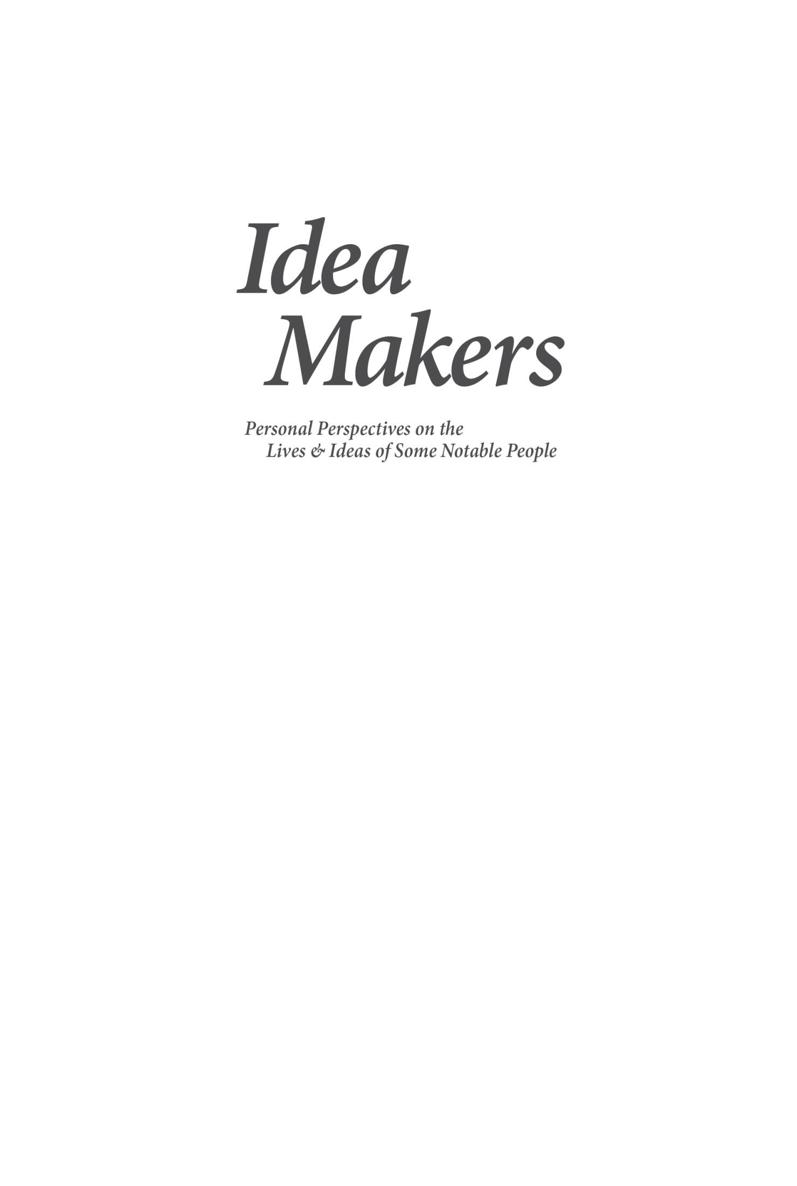

Idea Makers: Personal Perspectives on the Lives & Ideas of Some Notable People
Copyright 2016 Stephen Wolfram, LLC
Wolfram Media, Inc. | wolfram-media.com
ISBN 978-1-57955-003-5 (hardback)
ISBN 978-1-57955-005-9 (ebook)
Biography / Science
Library of Congress Cataloging-in-Publication Data
Wolfram, Stephen, author.
Idea makers : personal perspectives on the lives & ideas of some notable people
by Stephen Wolfram.
First edition. | Champaign : Wolfram Media, Inc., [2016]
LCCN 2016025380 (print) | LCCN 2016026486 (ebook)
ISBN 9781579550035 (hardcover : acid-free paper)
ISBN 9781579550059 (ebook) | ISBN 9781579550110 (ePub)
ISBN 9781579550059 (kindle)
LCSH: ScientistsBiography. | ScienceHistory.
LCC Q141 .W678562 2016 (print) | LCC Q141 (ebook)
DDC 509.2/2dc23
LC record available at https://lccn.loc.gov/2016025380
Sources for photos and archival materials that are not from the authors collection or in the public domain:
pp. 45, 66, 67: The Carl H. Pforzheimer Collection of Shelley and His Circle, The New York Public Library; pp. 46, 55, 56, 63, 65, 67, 79: Additional Manuscripts Collection, Charles Babbage Papers, British Library; p. 49: National Portrait Gallery; pp. 50, 60: Museum of the History of Science, Oxford; pp. 52, 53, 85, 86: Science Museum/Science & Society Picture Library; p. 54: The Power House Museum, Sydney; p. 68: Lord Lytton, The Bodleian Library; pp. 99120: Leibniz-Archiv/Leibniz Research Center Hannover, State Library of Lower Saxony; p. 138: Alisa Bokulich; p. 167170, 178: Cambridge University Library; pp. 192, 193: Trinity College Library; p. 194: Tata Institute of Fundamental Research
Printed by Friesens, Manitoba, Canada.  Acid-free paper. First edition.
Acid-free paper. First edition.
Preface
Ive spent most of my life working hard to build the future with science and technology. But two of my other great interests are history and people. This book is a collection of essays Ive written that indulge those interests. All of them are in the form of personal perspectives on peopledescribing from my point of view the stories of their lives and of the ideas they created.
Ive written different essays for different reasons: sometimes to commemorate a historical anniversary, sometimes because of a current event, and sometimesunfortunatelybecause someone just died. The people Ive written about span three centuries in timeand range from the very famous to the little-known. All of them had interests that intersect in some way or another with my own. But its ended up a rather eclectic listthats given me the opportunity to explore a wide range of very different lives and ideas.
When I was younger, I really didnt pay much attention to history. But as the decades have gone by, and Ive seen so many different things develop, Ive become progressively more interested in historyand in what it can teach us about the pattern of how things work. And Ive learned that decoding the actual facts and path of historylike so many other areasis a fascinating intellectual process.
Theres a stereotype that someone focused on science and technology wont be interested in people. But thats not me. Ive always been interested in people. Ive been fortunate over the course of my life to get to know a very large and diverse set of them. And as Ive grown my company over the past three decades Ive had the pleasure of working with many wonderful individuals. I always like to give help and advice. But Im also fascinated just to watch the trajectories of peoples livesand to see how people end up doing the things they do.
Its been great to personally witness so many life trajectories over the past half century. And in this book Ive written about a few of them. But Ive also been interested to learn about the life trajectories of those from the more distant past. Usually I know quite a lot about the end of the story: the legacy of their work and ideas. But I find it fascinating to see how these things came to beand how the paths of peoples lives led to what they did.
Part of my interest is purely intellectual. But part of it is more practicaland more selfish. What can I learn from historical examples about how things Im involved in now will work out? How can I use people from the past as models for people I know now? What can I learn for my own life from what these people did in their lives?
To be clear: this book is not a systematic analysis of great thinkers and creators through history. It is an eclectic collection of essays about particular people who for one reason or another were topical for me to write about. Ive tried to give both a sketch of each persons life in its historical context and a description of their ideasand then Ive tried to relate those ideas to my own ideas, and to the latest science and technology.
In the process of writing these essays Ive ended up doing a considerable amount of original research. When the essays are about people Ive personally known, Ive been able to draw on interactions I had with them, as well as on material Ive personally archived. For other people, Ive tried when its possible to seek out individuals who knew themand in all cases Ive worked hard to find original documents and other primary sources. Many people and institutions have been very forthcoming with their helpand also its been immensely helpful that in modern times so many historical documents have been scanned and put on the web.
But with all of this, Im still constantly struck by how hard it is to do history. So often theres been some story or analysis that people repeat all the time. But somehow something about it hasnt quite rung true with me. So Ive gone digging to try to find out the real story. Occasionally one just cant tell what it was. But at least for the people Ive written about in this book, there are usually enough records and documentsor actual people to talk tothat one can eventually figure it out.
My strategy is to keep on digging and getting information until things make sense to me, based on my knowledge of people and situations that are somehow similar to what Im studying. Its certainly helped that in my own life Ive seen all sorts of ideas and other things develop over the course of yearswhich has given me some intuition about how such things work. And one of the important lessons of this is that however brilliant one may be, every idea is the result of some progression or pathoften hard-won. If there seems to be a jump in the storya missing linkthen thats just because one hasnt figured it out. And I always try to go on until there arent mysteries anymore, and everything that happened makes sense in the context of my own experiences.
So having traced the lives of quite a few notable people, what have I learned? Perhaps the clearest lesson is that serious ideas that people have are always deeply entwined with the trajectories of their lives. That is not to say that people always live the paradigms they createin fact, often, almost paradoxically, they dont. But ideas arise out of the context of peoples lives. Indeed, more often than not, its a very practical situation that someone finds themselves in that leads them to create some strong, new, abstract idea.
When history is written, all thats usually said is that so-and-so came up with such-and-such an idea. But theres always more to it: theres always a human story behind it. Sometimes that story helps illuminate the abstract idea. But more often, it instead gives us insight about how to turn some human situation or practical issue into something intellectualand perhaps something that will live on, abstractly, long after the person who created it is gone.
Next page
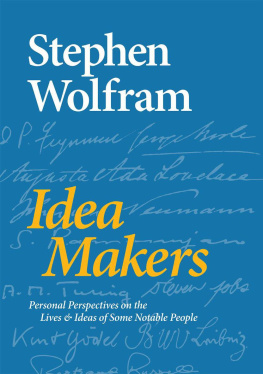
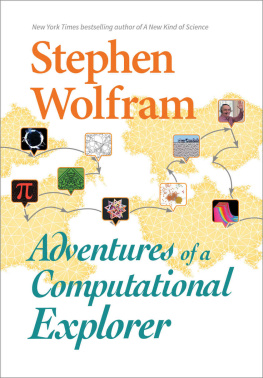





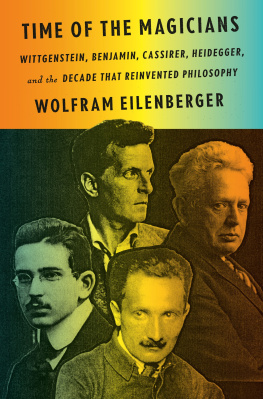
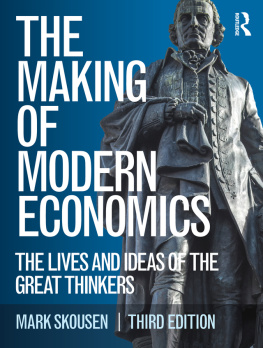
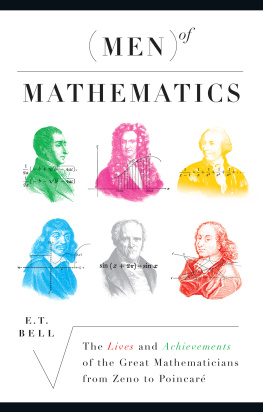



 Acid-free paper. First edition.
Acid-free paper. First edition.